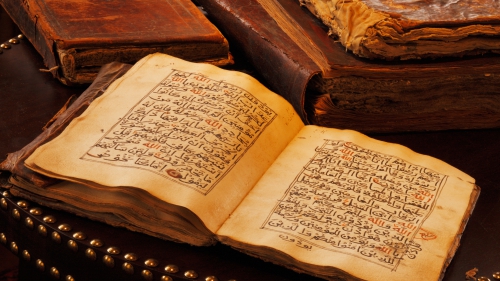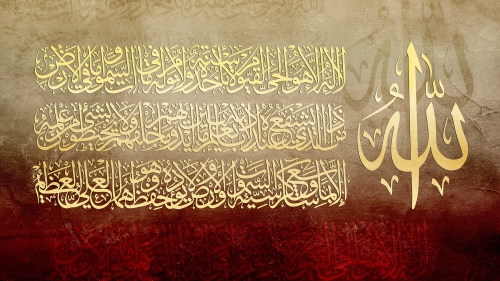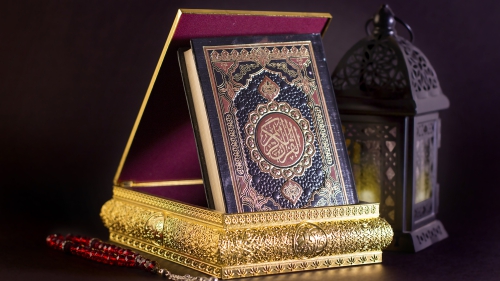The Qur'an In The Thought Of the Great Hanafi Jurist Mustafa Zarqa

The Qur'an In The Thought Of the Great Hanafi Jurist Mustafa Zarqa (r)
The foundational source of Islamic legislation is the Holy Qur'an. In this sacred text the essential principles of legislation were elucidated and creedal parameters were made clear and transparent in detail. As far as essentials in the sphere of worship and rights then these were presented as general, broad principles in the Qur'an and not in detail.
In Islamic legislation the Qur'an occupies the position of what is referred to as constitution status in secular law. The Qur'an is the model of the Prophet (s) and for this reason it served as the primary foundational source of Islamic legislation for succeeding generations that follow the era of Prophet Muhammad (saw).
The attribute of the Qu'ran as constitution indicates to us that it functions as a source of law in the form of a body of general principles which do not directly treat particulars and details of law except on occasion. If it was the case that it treated matters in a detailed manner then the aim of the Qur'an itself would be defeated and that is to be terse in its rhetorical discourse. Illustrative of this feature of the Qur'an is the manner in which the Qur'an speaks regarding Salah, and Zakat it does so in a general form without running the course of specifics and technicalities. The particulars of these two acts of worship, Salah and Zakat were clarified by the sayings and acts of the Prophet Muhammad (s), that is, by his Sunnah.
Likewise, the Qur'an ordered that contracts be fulfilled and realized, and it indicated textual grounding for the permissibility of business transactions (bay'a) impermissibility of "interest" in a general manner. The Qur'an did not clarify what contracts are valid and ought be fulfilled and which are those which are invalid and transactionally corrupt and ought not be enacted and binding. The Sunnah fulfills the task of providing the fine print details and restrictive principles to what is general and unspecified in the Qur'an.
It is correct to mention that the Qur'an on occasion took up the task of clarifying the details for some matters such as:
a.) inheritance laws
b.) the form one spouse ought to accuse the other in the case of adultery
c.) the character of certain penalties
d.) the category of women forbidden in marriage
In the general nature of the Qur'anic mode of legislation there is a distinct and important benefit that manifests specifically in the realm of civil economic and social transactions, and in the political and societal order. This benefit resides in the flexibility and breadth of Islamic legislation. Generality allows for the shariah to chart a course of action for man rooted in the realization of his well being and interest of (maslaha). This is the case given that in the event the legal judgement (hukm) of the shar'iah is implemented there is enough room to respond to the social dynamics that emerge as a result of variation in time, custom and place without violating the objectives of the shar'iah (maqasid ash shar'iah) in the process.
This is exemplified in the fact that political consultation (shurah siyasiyah) in the Qur'an is referred to without specificity or form so that it can be practiced in various systems of political organization which are aimed at realizing the public good (maslaha amma). Likewise, the Qur'an ordered the establishment of justice and the realization of rights between people by means of many a general text which establish general principles governing these matters. So in this respect the Qur'an did not specify the judicial path by which to establish justice between people. So from the numerical perspective a court of law handling this matter can consist of one person or a group and from the angle of degree the judicial system can rank in degree or be of one degree.
In any event, the generality that marks the Qur'an is in need of clarification and specification and restriction and that is the role of the Prophet's Sunnah. The Sunnah essentially is concerned with the manner and form governing the implementation of the Qur'an. That is the Sunnah is concerned with the how's, particulars and regulations governing the enforcement of general Qur'anic principles. The Qur'an indicates to this in the verse:
That which the Messenger orders you with accept it. And that which he forbids you to undertake, refrain from.
Translated and Adapted by: Abul-Hussein
Source: al-Madkhal al Fiqhi al-Amm, Mustafa Zarqa (r)
Topics: Hanafi School Of Law, Quran Values: Contentment, Morality
Views: 5989
Related Suggestions
'The attribute of the Qu'ran as constitution indicates to us that it functions as a source of law in the form of a body of general principles which do not directly treat particulars and details of law except on occasion. If it was the case that it treated matters in a detailed manner then the aim of the Qur'an itself would be defeated and that is to be terse in its rhetorical discourse. Illustrative of this feature of the Qur'an is the manner in which the Qur'an speaks regarding Salah, and Zakat it does so in a general form without running the course of specifics and technicalities. The particulars of these two acts of worship, Salah and Zakat were clarified by the sayings and acts of the Prophet Muhammad (s), that is, by his Sunnah.'
The went on to say;
'This is exemplified in the fact that political consultation (shurah siyasiyah) in the Qur'an is referred to without specificity or form so that it can be practiced in various systems of political organization which are aimed at realizing the public good (maslaha amma).'
A clear contradiction i must say.
There nothing that either the Quran or the Sunnah left behind with EXPLICITLY telling us how to practice IT. Its either you enter Islam as Allah (SWT) Said ..'udkhulu fissilmi kaffa.. and be saved or remain as He said also ...muzabzabina baina zalika laila haulai...and be doomed.
No pick and chose, just like salat and zakah is explained fully and must be done the way of the Prophet so also is 'siyasah' must be done the way of the Prophet. No customs or traditions determine our way of islam.
I rest my case.

















